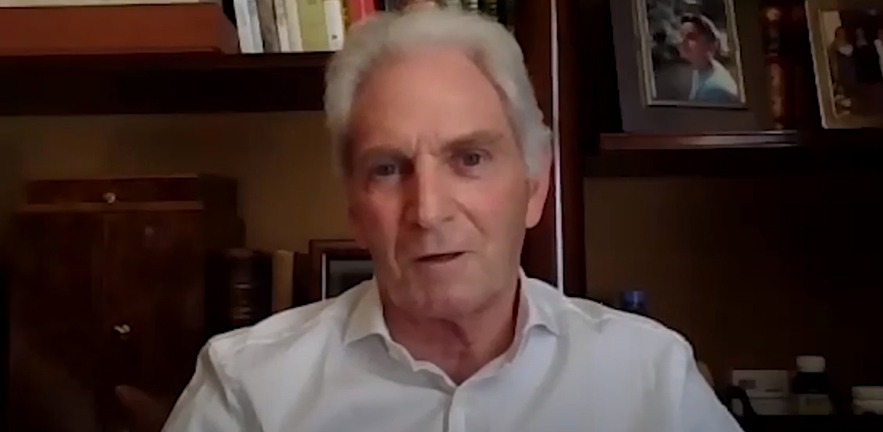Dr Nasser Saidi, Founder and President of Nasser Saidi & Associates, believes that the Lebanese people have the skill and desire to turn their troubled country around – but what Lebanon really needs is political, economic, fiscal, and monetary reform, and good government, especially in this difficult period following last year’s devastating explosion in Beirut’s port in August.
Dr Saidi is the former Minister of Economy and Trade and Minister of Industry of Lebanon, and a former First Vice Governor of Lebanon’s Central Bank.
He was interviewed in 2020 by Dr Jenny Chu, University Senior Lecturer in Accounting at Cambridge Judge Business School, in the latest of a series entitled CJBS Perspectives: Leadership in Unprecedented Times, organised by the Alumni & External Engagement and Executive Education teams at Cambridge Judge.
Here are edited excerpts of the interview:
Beirut has always been considered the Paris of the Middle East. So, what’s the economic impact of the tragic explosion last summer?
“Lebanon has not only an economic crisis, but also a banking crisis and healthcare crisis due to the coronavirus pandemic – and on top of that you have the Beirut port explosion. Just to give an idea how severe the crisis is, we’re expecting the GDP to decline around 25 per cent this year, which is worse than the Great Depression of the 1930s. At the same time, we have a collapse of the exchange rate because the Central Bank has used all its reserves running a Ponzi scheme. The currency has declined over 80 per cent over the past nine months. The inflation by July this year was more than 100 per cent. We have a combination of deep depression, hyperinflation, and a high unemployment rate.”
Do you think that Lebanon is becoming a failed state?
“Unless you have deep reforms and immediate action, the country will become like Venezuela where you have mass migration. This will lead to an implosion, social and political unrest. We need to have reforms now, otherwise we’ll have a failed state.”
What reforms need to be done? And what does Lebanon need from the international community?
“We need to restructure and reduce the size of the government, reduce the budget deficit, improve revenue, and cut down subsidies, for example in electricity. And at the same time, we need monetary policy reform as we can no longer continue the current exchange rate.”
What sort of leadership is needed to rebuild the Lebanese economy and to make these recommendations happen?
“I think we need a new government or what I call it a ‘hara-kiri government’. What I mean by that is you’ll need to have people who are willing to sacrifice their political career to undertake deep and unpopular reforms. Of course, the politicians, being major beneficiaries of the system over the years, will not be willing to allow that. So, we need ministers who are politically independent, experts in public policy. Second, we need international support – financial support. This is feasible if the country is ready to act on reforms and reduce corruption. This is an important condition.”
Do you see any leaders in Lebanon at the moment who would be qualified to take these reforms?
“Lebanon has always invested in human capital and has also been exporting talent outside the country. There are four times as many Lebanese outside Lebanon as there are within the country. Therefore, we have a diaspora of talent in banking and finance, education, entrepreneurship – and these people want to help to rebuild the country. We know how to fix problems and undertake reforms: a lot of Lebanese have been living in Gulf countries, Africa, and elsewhere in the past 20-30 years helping to develop these countries. So we know how to do it. What we need is the politicians to let us do it.”
Lebanese are famous for their resilience rebuilding after years of civil war. Do you see any light at the end of the tunnel?
“I see how people and NGOs are active in rebuilding their homes and helping others – that leaves me optimistic. When you have major events like this it changes things dramatically. All the fear people have had of government is now gone. People have nothing to lose: they’ve lost their homes, families, jobs. The only thing for them to lose now, is to lose corrupted government. So, I think the protests will continue and accelerate until we get big changes. This is a moment of transformation.”


